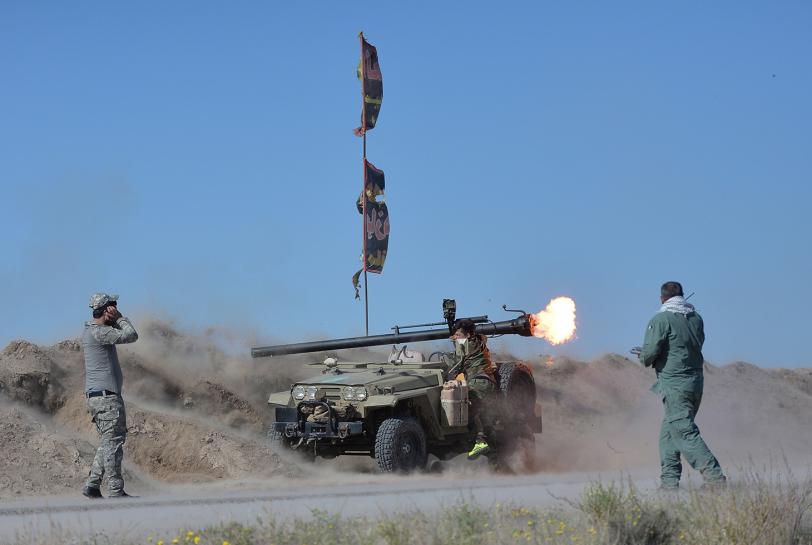Iraqi forces clashed with ISIS militants near Fallujah on Monday, pushing them from some agricultural areas outside the city at the start of a military offensive aimed at freeing it from the terrorist group.
Police 1st Lt. Ahmed Mahdi Salih said Monday that the ground fighting is taking place around the town of Garma, east of Fallujah, which is considered the main supply line to the militants. ISIS holds the center of Garma and some areas on its outskirts.
After launching the long-awaited military offensive late Sunday night, Iraqi government forces backed by U.S.-led coalition airstrikes and paramilitary troops advanced while bombing central districts in the initial hours of the operation that could take several weeks.
Some of the first direct engagement occurred in al-Hayakil area on the city’s southern outskirts, a resident said. Airstrikes and mortars overnight targeted neighborhoods inside the city proper where ISIS is thought to maintain its headquarters. But the bombardment had lessened by daylight.
Residents living in the center said they had fled to relative safety in outlying northern areas but roadside bombs planted by ISIS prevented them from leaving the city.
Fallujah, a longtime bastion of jihadists, 50 km (30 miles) from Baghdad, was the first city to fall to ISIS, in January 2014. Six months later, the group declared a caliphate spanning nearly a third of Iraq and neighboring Syria.
Iraqi forces have surrounded the city since last year but focused most combat operations on ISIS-held territories further west and north. The authorities have pledged to retake Mosul this year in keeping with a U.S. plan to dislodge ISIS from their de facto capitals in Iraq and Syria.
But the Fallujah operation, which is not considered a military prerequisite for advancing on Mosul, could push back that timeline. Two offensives by U.S. forces against al Qaeda insurgents in Fallujah in 2004, which left the city badly damaged, each lasted about a month.
Prime Minister Haider al-Abadi, who also faces political and economic crises in the major OPEC producer, visited a command center set up nearby to watch over operations, state television said on Monday.
Abadi, announcing the offensive in a late-night speech, said it would be conducted by the army, police, counter-terrorism forces, local tribal fighters and a coalition of mostly Shi’ite Muslim officials.
Iraqi officials say the militias, including ones backed by Iran, may be restricted to operating outside the city limits, as they were largely in the battle for nearby Ramadi six months ago, to avoid aggravating sectarian tensions with Sunni residents.
State television showed footage of armored vehicles sitting among palm groves on the city’s outskirts, a green tracer glow emanating from shells and machine gun fire.
Video showed a family standing in the daylight outside a simple one-story home, cheering and waving a white flag as a military convoy passed by.
Iraqi and U.S. officials estimate there are as many as 100,000 civilians still living in Fallujah, a city on the Euphrates river whose population was three times that size before the war.
The United Nations and Human Rights Watch said last month residents of Fallujah were facing acute shortages of food and medicine amid due to besiegement. Aid has not reached the city since the Iraqi military recaptured nearby Ramada in December.
The government has called on civilians to flee and said it would open safe corridors to areas south of the city, but bombs planted by ISIS along the roads are complicating evacuation.
